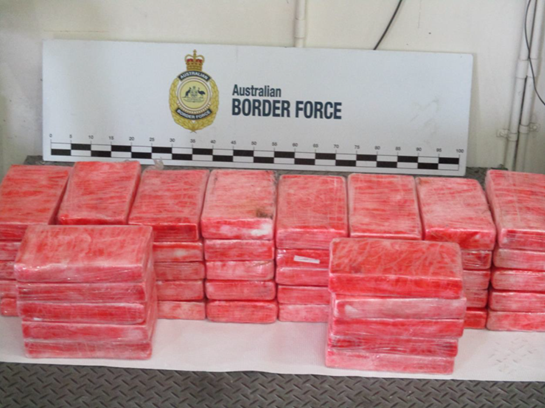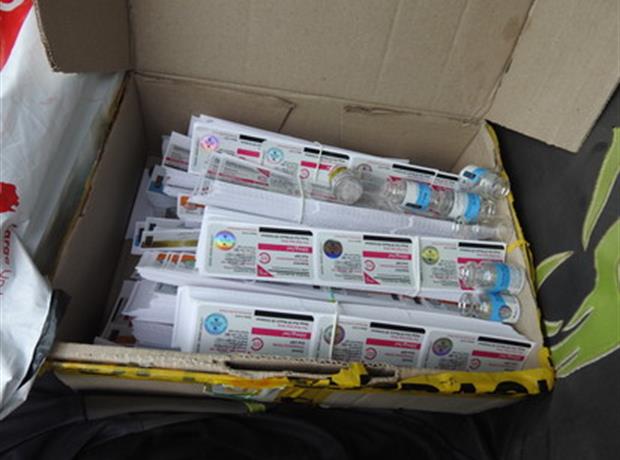Air Freight & Postal Specialists
3hr - Intl Postal Clearance
4hr - Air Freight Clearance
It's Simple - Just submit online in 5mins, then we do the rest.
Lowest Price Guarantee
As a specialist brokerage our pricing is highly competitive, but rest
assured if you find a cheaper comparative quote - We’ll beat it by 10%
step 1 - Select your import method

For goods valued over AUD
1,000 that have been sent
via the origin country’s
postal system (e.g. USPS).
If you have one of these
consignments you will have
received a 13-digit tracking
number from the sender
and/or a customs letter in
the mail.
Where goods have been
consigned from the origin
either directly with the
airlines or via a freight
forwarder at the origin.
If you have a direct air
freight consignment you will
have received an Air Waybill
from either your supplier or
freight forwarder.
For FedEx shipments that
contain “personal effects”,
which are goods that you’ve
owned and used overseas
for a period of 12mths or
more prior to your arrival in
Australia.
If you have one of these,
FedEx will have notified you
to contact an external broker
to clear your goods.
Why use e-Customs Broker Sydney?
Personal Importer Google Reviews

Trusted by Corporations
Importing into Sydney - A Customs Agent's Perspective
With some 110 international flights arriving every day, Sydney is the heart of Australia’s
customs and trade industry. If you’re new to importing you’ll also benefit from the wide array of
customs and trade consultants in your local area.
As a Sydney based customs broker, we provide clearance services for all international cargo
flights (incl cargo transfers to Wollongong and surrounds) for personal or commercial business
consignments to all of NSW. So, if you’ve got just a single laptop or an entire motor show fleet,
we can expedite the customs clearance process for you with a minimum of fuss.
The Department of Immigration and Border Protection (DIBP) currently has 9 offices in NSW
including a firearms cell at Port Botany, and the entire Australia-Wide Customs “B374 - Import
Declaration (N10) – Post” (manual) processing centre is located at Customs House, 10 Cooks
River Drive, Mascot.
If you’re a postal importer with a Sydney/Wollongong residential delivery address then you’ve
also got a locational benefit as the state boasts Australia’s largest postal customs bond at Clyde,
which means your consignment will typically arrive in your hands earlier than other Australia
Post intercity transferred cargo.
Due to the size of this postal bond, many consignments arriving for other Australian delivery
locations are also checked-in and customs carded here – where officers manually allocate a
unique reference identifier to your consignment and you receive a “Customs Notice” in the mail.
It’s not uncommon that Brisbane residents receive NSW issued notices, which once cleared are
dispatched out to be locally delivered as free cargo in Brisbane.
Customs Clearance and Sydney Customs Brokers Explained
Air Freight: All importations, regardless of value, arriving via direct airfreight require a customs entry lodged for border security compliance and/or the collection of duties/taxes.
Australia Post: If your consignment exceeds AUD 1,000 and it's arriving via international post then you'll require a customs entry lodged for border security compliance and/or the collection of duties/taxes.
FedEx: All importations that arrive through FedEx that either contain Personal Effects or have a consignment value over AUD 1,000 require a customs clearance for border security compliance and/or the collection of duties/taxes.
In addition to the above circumstances, Customs also stops any shipments that meet ANY of the below criteria:
- Contain Alcohol or Tobacco (ANY quantity or value).
- Contain any goods of Customs Interest.
- Contain any Customs Prohibited or Restricted Imports.
Please Note: The above is only a guide. Even if your goods don't meet these criteria, Customs still maintains the right to hold and inspect any goods at their discretion.
Customs Duty is a percentage of the Customs Value (CV) of your importation. The applicable duty rate can be anywhere from 0% to 10% (product dependent), however for most goods a 5% duty rate is levied.
Customs GST is 10% of the Value of the Taxable Import (VoTI). The VoTI is calculated by the addition of three values, the Customs Value (CV) + the Duty + the freight cost (Intl Transport and Insurance or T&I).
When your importing goods worth more than AUD 1,000 then you’re required to lodge a formal import declaration (FID). Customs brokers lodge these declarations electronically for you and ensure compliance the relevant import legislation.
This covers all the government regulations of Australian Border Force (ABF or Customs), the ATO, Department of Agriculture and Water Resources (Quarantine), CITES, the Dept. of Infrastructure and any other relevant legislation that may be applicable to your goods.
An effective customs broker should save you time and usually money too, often more than you're paying them. Although it’s not mandatory to use a broker facilitate your clearance, in most cases it’s beneficial as described below.
SAVINGS: Customs brokers work to ensure you’re paying the minimum duty and/or GST permitted by law for the specific circumstances of your import. And there are many avenues available for brokers to do this.
For example, in over 83% (avg.) of cases, our postal import clients pay less to use us than if they lodged a B374 - Import Declaration (N10) – Post form themselves.
TIME: We electronically process customs clearances which is much quicker than the manual self-lodgement of an import declaration.
For example, postal consignments are cleared in under 3hrs, but customs 8-10 business days to process self-lodgement submissions.
SIMPLICITY: With a customs broker, all you do is forward them your documents and they do the rest. With e-customs broker it’s even easier because you can submit all online in less than 5mins.
Self-lodgement requires you to complete the import declaration yourself, including applying the correct classification of goods and valuation methods based on your specific import circumstances.
LIABILITY: Another benefit of using a broker is that they protect you from the risk of liability for lodging an erroneous import declaration, which can be significant - anything up to a $12,000 strict liability fine.
The bottom line is that if you’re not 100% sure that you understand the legislation and know what your declaring to customs, then you should use a customs broker.
Air Freight: Once cleared, we email you full collection instructions, then you simply proceed to collect your goods from the nominated airline bond in accordance with these instructions.
Australia Post: Upon receipt of our release emails, your consignment is “Customs Cleared” and our servers immediately notifies Customs of the release. Customs then generates a cargo release report at midnight on the day of clearance, then Australia Post is notified of the release (on the next business day) and instructed to deliver your goods.
FedEx: Upon customs entry completion, we immediately notify FedEx to dispatch your goods for delivery, which usually occurs on the following business day, providing that you’re located within FedEx’s same day delivery zones.
e-Customs Broker Sydney - The Air Freight/Postal Specialists
© Copyright e-Customs Broker Pty Ltd 2021 | ABN: 49 088 615 249













































